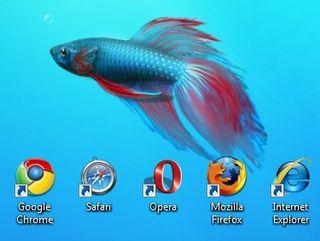Microsoft ballot go-ahead: The EC statement
What's been offered, and why

The EC has explained that it believes Microsoft's ballot proposal is an adequate measure to address concerns about anti-competitive bundling of the IE browser.
In a statement from the Commission, it was made clear exactly what the ballot page would consist of and that it would continue to have the right to review the practice in future.
"The improvements that Microsoft has made to its proposal since July would ensure that consumers could make a free and fully informed choice of web browser. Microsoft has in particular agreed to present users with a first screen explaining what web browsers are.
"'Tell me more' buttons for each browser would also enable users to learn more about the web browser they may wish to install. The user experience would be better and the choice screen would better represent competing browser vendors.
"Finally, the proposed commitment would now be subject to a clause allowing the Commission to review it in the future to ensure that consumers would continue to have a genuine choice among browsers."
Five years of choice
A time frame of five years has been put on the browser ballot page by the EC, with the European body insisting that its primary goal is to ensure a "an effective and unbiased choice between Internet Explorer and competing web browsers to ensure competition on the merits and to allow consumers to benefit from technical development and innovation both on the web browser market and on related markets.
Get daily insight, inspiration and deals in your inbox
Get the hottest deals available in your inbox plus news, reviews, opinion, analysis and more from the TechRadar team.
"Under its revised proposal, Microsoft would make available for five years in the European Economic Area (through the Windows Update mechanism) a choice screen enabling users of Windows XP, Windows Vista and Windows 7 (Microsoft's next version of its PC operating system) to choose which web browser(s) they want to install in addition to, or instead of Internet Explorer.
"Likewise, in future versions of Windows, including Windows 7, PC manufacturers would be able to install competing web browsers, set those as default and disable Internet Explorer.
"The Commission's concern has been that PC users should have an effective and unbiased choice between Internet Explorer and competing web browsers to ensure competition on the merits and to allow consumers to benefit from technical development and innovation both on the web browser market and on related markets, such as web-based applications.
"The Commission's preliminary view is that Microsoft's commitments would address these competition concerns and is market testing Microsoft's proposal in light of these requirements."
The full statement can be read at http://europa.eu/rapid/pressReleasesAction.do?reference=MEMO/09/439&format=HTML&aged=0&language=EN&guiLanguage=en
Patrick Goss is the ex-Editor in Chief of TechRadar. Patrick was a passionate and experienced journalist, and he has been lucky enough to work on some of the finest online properties on the planet, building audiences everywhere and establishing himself at the forefront of digital content. After a long stint as the boss at TechRadar, Patrick has now moved on to a role with Apple, where he is the Managing Editor for the App Store in the UK.

